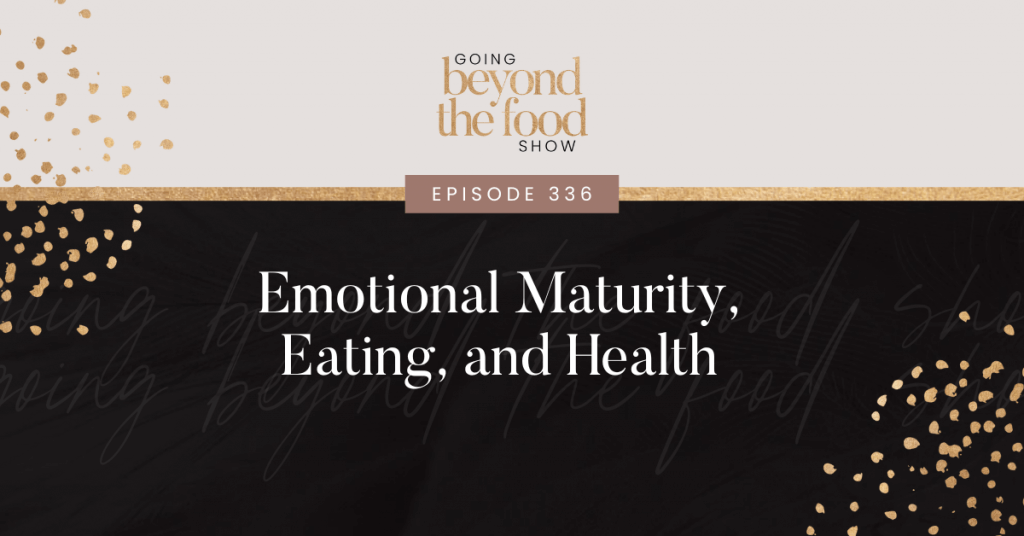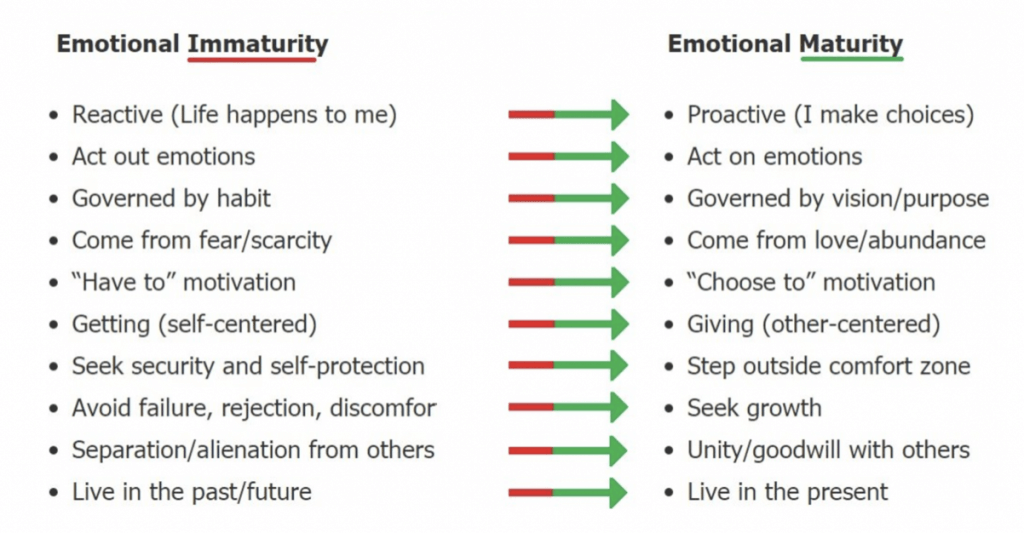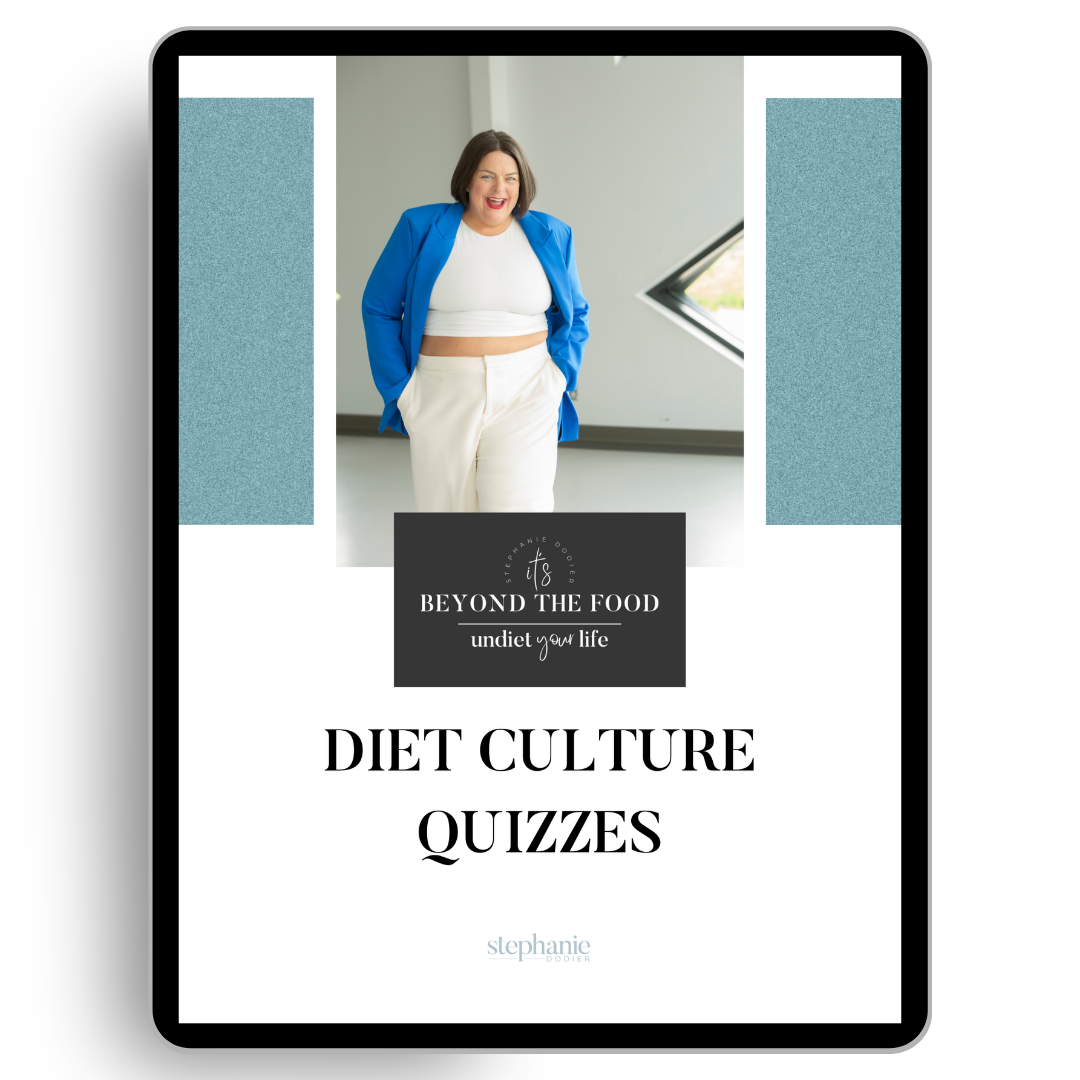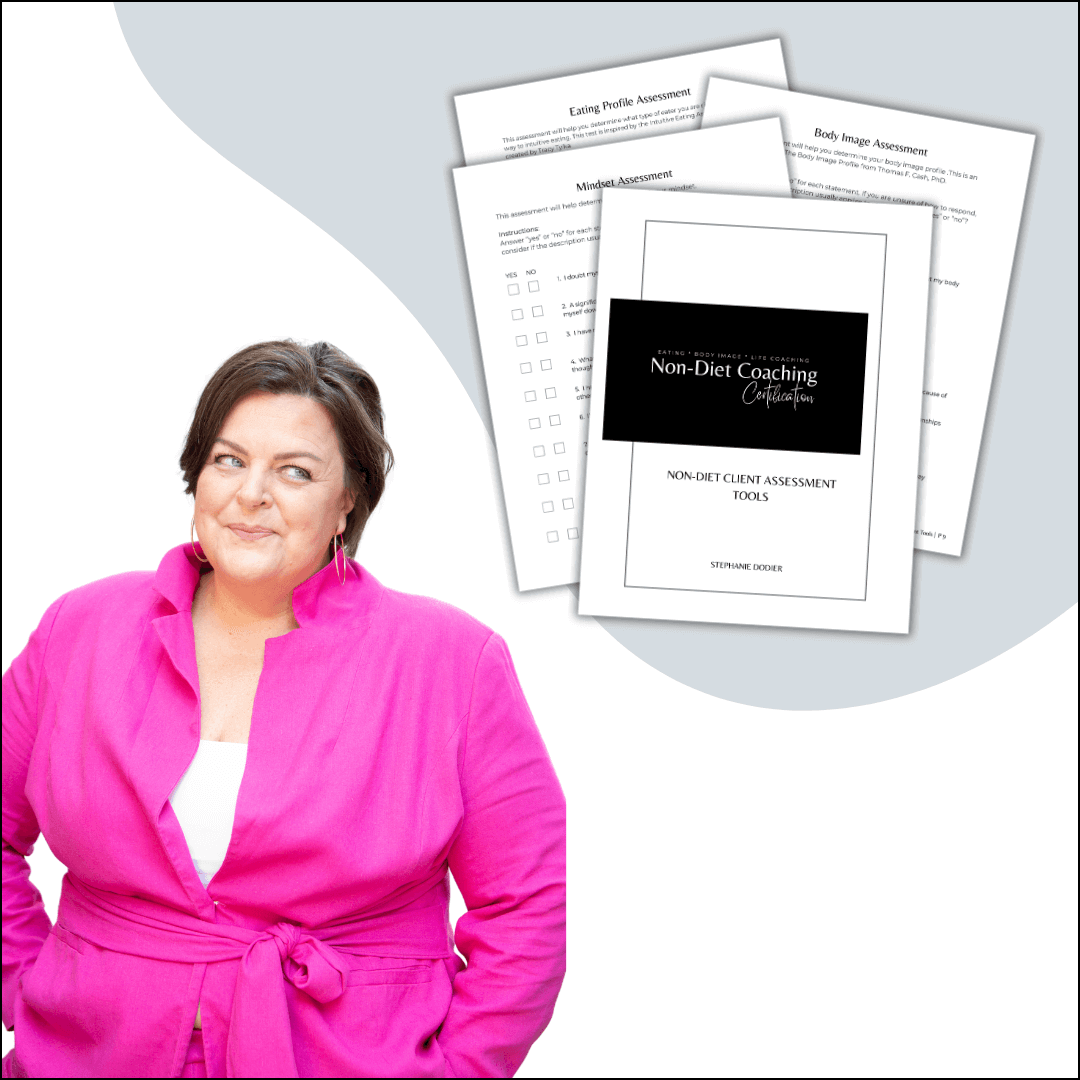
Your emotional maturity impacts your eating and health, yet for many women, their focus is on their behaviors and actions.
I am inviting you to try a new solution. The solution is not about willpower, checklists, and accountability but about becoming emotionally mature.
When I used to feel anxiety, it would result in a panic attack. I would want to crawl out of my body.
Contrary to how most people approach this, the solution wasn’t to try to control the emotion by getting rid of it. Instead, I built the capacity to embrace the uncomfortable feeling.
For example, I’m traveling to Morroco, and the anticipation of culture shock has brought up emotions of anxiety. I could choose to react to this anxiety which would result in distracting behaviors such as watching television, or I can choose to respond to it, which looks like first welcoming the fear.
Emotional maturity is being able to be with your emotion, to understand your feelings.
Emotions are a radar, signals guiding you through life. They aren’t good or bad. They are a map to understand you better. Accepting this, you learn to respond instead of reacting to them.
Emotional Maturity, Eating and Health
Reacting to emotions can look like numbing with watching TV, social media, or eating.
Emotional maturity is being aware of what you are feeling and then understanding why, which allows you to choose how to best respond.
When we don’t have emotional maturity, we tend to use controlling actions such as diets to create a desired feeling, but this, more often than not, results in the exact opposite of what we want.

Radical Responsibility
Radical responsibility is part of emotional maturity. When you learn to process and understand your emotions, you realize that you are responsible for your feelings and how you choose to respond to them.
By becoming emotionally mature, you create emotional safety for yourself and others. You engage with others differently because you understand how others respond or react to their emotions.
It’s powerful when you no longer react to others’ emotions. Your mental and emotional space isn’t consumed by reacting to others because you no longer believe how you feel is caused by someone else.
To pursue responding to your emotions, you have to believe in yourself. You have to have your own back, no matter the outcome of your decisions.
A reactive state is when you feel an emotion come on and immediately want to avoid it, leaving little room to build trust in yourself.
If you commit to believing in your possibility of becoming an emotionally mature person, you absolutely can do it. When you understand what emotional maturity is and the process of embodying it, it is possible for you, sister.
When you are ready to understand your emotions so you can engage with food, your body image, your work and your relationships differently, join Undiet Your Life.
What you’ll learn listening to this episode on Emotional Maturity, Eating and Health:
- What it means to be emotionally mature
- The difference between reacting and responding to your emotions
- How becoming emotionally mature impacts your relationship with food and your body






